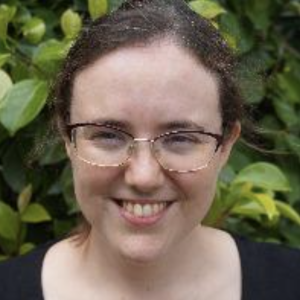Call for papers: Special issue on Vanuatu languages
Download full article (PDF)
11 June 2024
Call for papers: Te Reo 2025 – Special Issue on Vanuatu languages
The linguistic landscape of Vanuatu is unique – the diversity of Indigenous languages is exceptional, and the colonial history that established Bislama, English and French as official languages added more layers of complexity. Vanuatu’s Independence in 1980 put the new country in a position to protect Indigenous languages and regulate language policy and research. In the 45 years since Independence, Vanuatu’s languages have received growing attention from linguists, especially thanks to the efforts of the late professors John Lynch and Terry Crowley. New generations of linguists, including growing numbers of ni-Vanuatu researchers, continue to add to our knowledge about Vanuatu’s languages, as demonstrated by two well-attended Vanuatu Languages Conferences in Port Vila in 2019 and 2023.
Still, around half of Vanuatu’s Indigenous languages are virtually undocumented or severely under- documented. Even for Vanuatu languages that have been relatively well-documented, mobilising linguistic research to best serve community members and their priorities remains an important challenge. There is also a continuing need for research on the linguistic structure of Bislama, especially across different varieties and speech styles, as well as local varieties of English and French. Documentation of the linguistic practices of deaf people in Vanuatu and their wider communities remains limited, as well as gestural and multimodal aspects of spoken-language communication.
This special issue of Te Reo dedicated to research on Vanuatu’s languages will be published in 2025 to commemorate 45 years of Vanuatu’s Independence, and in honour of Terry Crowley, who passed away 20 years earlier in 2005, and John Lynch who passed away more recently in 2021. The aim is to bring together scholars and others who work on Vanuatu’s languages, to celebrate the growth of linguistic research in Vanuatu, as well as reflect on remaining challenges and directions for the future.
Submissions need to follow the general guidelines of Te Reo (https://nzlingsoc.org/journal/submission-guidelines/), unless otherwise stated here. Te Reo is a Platinum journal, meaning that all articles are published with open access and free of charge for the authors. Each submission will be double blind peer reviewed. We welcome both longer research articles (normally no more than 15,000 words) and shorter squibs (up to 6,000 words).
We also welcome submissions by ni-Vanuatu filwoka, language activists, teachers, translators and others who are involved in language-related work in Vanuatu. As well as research, such submissions could be autobiographical accounts, project reports, opinion pieces etc. Submissions in Bislama, or other Vanuatu languages with a Bislama translation, are welcome.
Submissions need to be in Word or PDF format and anonymized. See how you can anonymise your submission here: https://share.eva.mpg.de/index.php/s/29i6n3pPBKCWCHy
You can submit your article by 31st December 2024 at this link: https://nzlingsoc.org/journal/submit- your-article/. Please write ‘Special Issue on Vanuatu languages’ in response to ‘List two reasons why you think Te Reo would be a good outlet for your article’.
We also ask that you submit a brief abstract (around 200-300 words) by 30th September 2024, including whether the contribution is intended as a full research article, squib, or non-research article, to help us to organise a smooth and efficient peer review process.
Email abstracts to tereo.vanuatu2025@gmail.com.
We welcome any contributions related to Vanuatu’s languages. The topics may include (but are not
limited to) the following:
⎪ Documentation of Vanuatu languages
⎪ Description and/or analysis of specific features of Vanuatu languages
⎪ The role of political independence in shaping language policies and language research
⎪ Community experiences of language research, maintenance and revitalisation
⎪ Vernacular literacy and language material creation
⎪ Sign languages of Vanuatu
⎪ Genetics, population movement, and language change
⎪ Variation
⎪ Multilingualism
⎪ Historical linguistic relationships
⎪ Language acquisition
⎪ Language policy
⎪ Language ecology and linguistic ecosystems
⎪ Building local capacity in language documentation and revitalisation
⎪ Studies at the intersection of linguistics and other adjacent fields (archeology, history, education, etc.)
⎪ Work-in-progress reports about ongoing research
If you have any questions about potential contributions, please email tereo.vanuatu2025@gmail.com or one of the co-guest-editors:
⎪Lana Takau, Max Planck Institute (lgtakau@gmail.com)
⎪Tihomir Rangelov, Max Planck Institute (tihomir_rangelov@eva.mpg.de)
⎪Eleanor Ridge, Massey University (e.ridge@massey.ac.nz).
====end of call====

